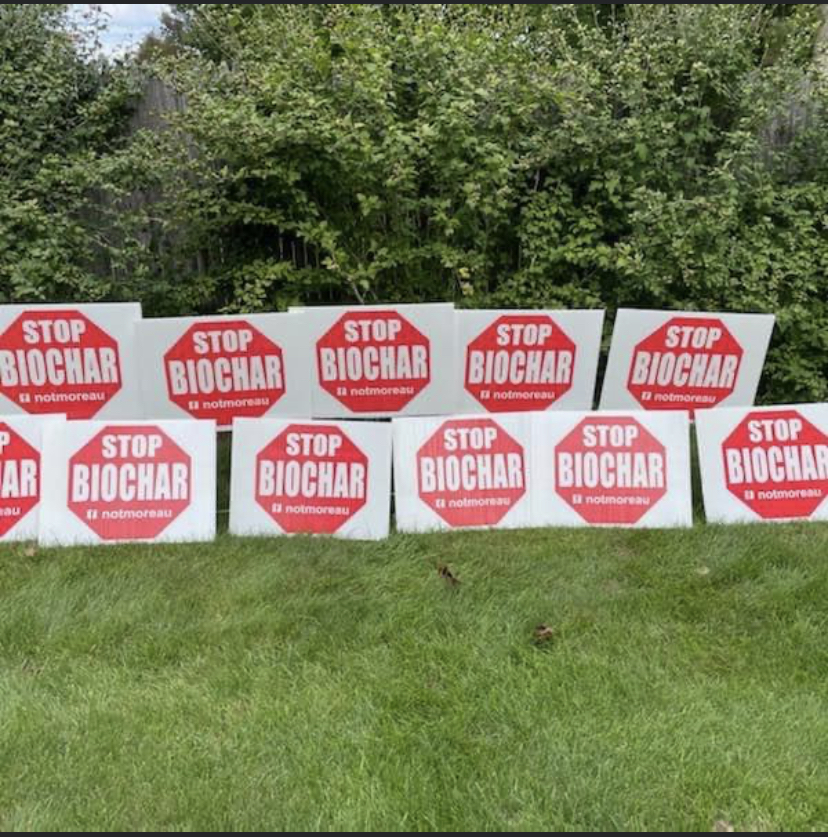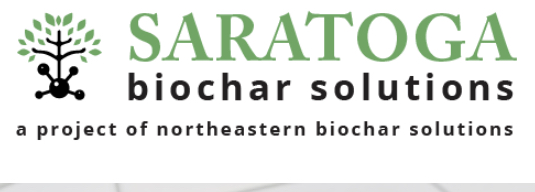Saratoga Biochar To Hold Virtual Public Information Hearing
On December 19, 2022, Biochar will be hosting a virtual public information hearing regarding the plans to build a multi-million carbon-fertilizer plant in Moreau Industrial Park on Farnan Road. This meeting will be held via Microsoft Teams from 6p.m.- 8p.m. During the hearing Saratoga Biochar will present a 15 minute overview of the project, which will be followed by public comments and questions. To join the online meeting, use the following link: https://bit.ly/3UaoNjX. Saratoga Biochar CEO, Raymond Apy, said that the Department of Environmental Conservation approved the company’s public participation plan. More information about the Public Participation Plan can be found at saratogabiochar.com then click on PPP.
Saratoga Biochar Solutions has been established to build, own, and operate a fertilizer manufacturing plant in Moreau, New York. This facility is designed to process up to 15% of the biosolids generated in New York, and use them to produce a revolutionary bio-fertilizer. Although there are environmental benefits to the fertilizer that this company is producing, there has been no shortage of red tape, controversy, and push-back from the community.
In 1994, 243 acres of land were acquired by the town of Moreau and zoned for heavy industrial use; this area was designated the Moreau Industrial Park. This area was divided into 26 shovel-ready lots, and in 1997, the first occupant – adhesive manufacturer Hexon – moved into the industrial park… However, since then, there have not been any other tenants.
Recently, Northeastern Biochar acquired 2 lots in the park, hoping to construct Saratoga Biochar: a 74,300 square foot site that would take in biosolids that have already gone through the wastewater system, and then convert them into fertilizer. The plant would be built in three phases, combine two lots in the industrial park, and employ 20 people when it is fully operational.
The advocacy group “Not Moreau” has condemned the addition of a fertilizer plant in Moreau, with community members citing concerns about the access roads that will be built, the increase in truck traffic in the neighborhood, public safety, and potential pollution.

Gina Leclair – a former Moreau town board member – operates the “Not Moreau” facebook page. “The road I live on doesn’t even have yellow lines, it doesn’t have a shoulder. Other roads they’re looking at are residential-type roads. They have lines, but they’re not heavy traffic roads. To bring that type of traffic by all of these homes on these roads does not seem like a wise or safe idea” Leclair reportedly said. The traffic infrastructure is a concern that residents have been vocal about; the Biochar facility is expected to see twenty trucks a day, between the hours of 6:00 AM and 6:00 PM; that works out to 1.6 trucks an hour.
In addition to the community push back, Northeastern Biochar (the owner of Saratoga Biochar) has had to deal with no small amount of red tape: “We applied to the Town of Moreau planning board, and I’ll tell you this: I respect them immensely, (but) they haven’t made it easy for us” Raymond Apy, CEO reportedly said.
Biochar is focused on the environmental impact of the product they are producing; their goal is to remediate a waste problem and simultaneously create a clean and safe fertilizer product. Saratoga Biochar’s process uniquely destroys PFAS, VOCs, pathogens, micro-plastics and numerous other trace contaminants. These “forever chemicals”, micro-plastics and contaminants are removed from the solids and then thermally oxidized in gaseous form to full remediation. According to their website, the Saratoga Biochar process and air treatment systems reduces nitrous oxides, sulfur dioxide, ammonia, particles, and odor; the Biochar processes are expected to help avoid potentially harmful compounds from being released into the Moreau air, water, and soil.
Biosolids are solid, organic matter recovered from the sewage treatment process, and can be used as fertilizer; since the 1920’s, the farming community has used raw sewage sludge from local wastewater plants. Scientific research over the years has confirmed that the biosolids within contain similar nutrients to those in animal manure.
Biosolids often end up in landfills, but landfilling proliferates pathogens and odors; the landfill system of disposal emits methane, spread PFAS and other contaminants in the air and water, and also wastes valuable resources like carbon and other nutrients.
PFAS stands for per-and polyfluoroalkyl substances. They contain a strong carbon-fluorine bond; this allows them to accumulate over time in the environment, and in the bodies of animals and people., and they pose health risks. PFAS chemicals might also be thought of as “everywhere chemicals” since they’ve become so common in the products we use every day.
The goal of Saratoga Biochar is to create a cycle of fewer PFAS and other harmful contaminants that end up on lawns, and in farms, water, and the food supply.
North of Queensbury, the residents of Jenkinsville have contaminated well water; the affected residents have been drinking bottled water due to contamination in wells near an inactive landfill. The DEC has been providing bottled water to residents that showed 1.4-dioxane levels or above found in wells, and continues to study the nearby landfill believed to be the cause. Northeastern Biochar’s ultimate goal is to end the chain of micro plastics, PFAS and other particles showing up in backyards, water sources, and the human body.
With any environmental solution, there will always come a problem. A system that reduces forever chemicals in water, land and the food chain is important technology that can help the environment; however, this environmental advancement supposedly comes with increased traffic, noise, and possibly pollution in the community of Moreau.
As of the end of October of 2022, The Clean Air Action Network of Glens Falls filed a lawsuit: this Article 78 petition is against the Town of Moreau Planning Board, and Saratoga Biochar Solutions. The suit alleges that the Planning Board did not follow the State Environmental Quality Review Act before allowing the project to move forward.
